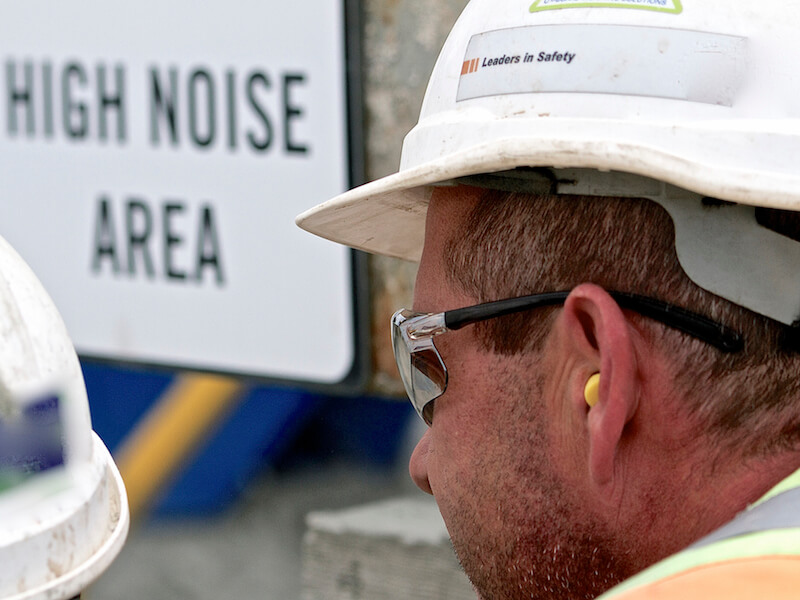
A loud workplace isn’t all that great for your ears (or your concentration, for that matter). Your hearing health can be negatively impacted by even modest levels of noise if you’re exposed to it for several hours every day. For this reason questions like “what hearing protection do I need?” are worth asking.
It’s not common knowledge that several levels of hearing protection are available. But when you take a moment to consider it, it makes sense. A truck driver won’t need the same level of protection that a jet engine mechanic will.
Levels of Hearing Damage
The general rule of thumb is that 85 decibels (dB) of sound can start harming your ears. We aren’t really used to thinking about sound in decibels (even though that’s how we calculate sound – it’s just not a figure we’re used to putting into context).
Eighty-five decibels is about how loud city traffic is when you’re sitting inside your car. That’s not a big deal, right? Actually, it’s fairly significant. At least, it’s a big deal after several hours. Because it isn’t just the loudness of the noise that you need to pay attention to, it’s the duration of exposure.
Common Danger Zones
It’s time to consider hearing protection if you are exposed to noise at 85 dB or louder for 8 hour days. But that isn’t the only threshold you should be aware of. If you’re exposed to:
- 90 dB (e.g., lawnmower): Anything over four hours will be harmful to your hearing.
- 100 dB (e.g., power tools): Your ears will be injured when exposed to this level of noise for 1 hour a day.
- 110 dB (e.g., leaf blower): Anything above fifteen minutes will be harmful to your hearing.
- 120 dB (e.g., rock concert): If your exposed to this level of noise for any amount of time, your hearing can be damaged.
- 140 dB (e.g., jet engine): Any exposure can cause damage and might even cause instant pain.
When you are going to be exposed to these levels of sound, wear hearing protection that will bring the volume in your ears down below 85 dB.
Make Sure Your Hearing Protection Fits Comfortably
NRR, which is an acronym for Noise Reduction Rate, is a scale used to determine the effectiveness of hearing protection. Outside sound will become progressively quieter the higher the NRR.
It’s incredibly important that you pick hearing protection with a high enough NRR to keep you safe (and your workplace will usually make suggestions about what level will be appropriate).
But there’s another element to consider also: comfort. It turns out, comfort is incredibly significant to keeping your hearing healthy. Why? Because if your hearing protection isn’t comfortable, you’re not going to wear it.
What Are my Hearing Protection Options?
There Are Basically Three Options:
- In-ear earplugs
- Earplugs that sit just outside of the ear canal.
- Earmuffs.
Each form of protection has benefits and drawbacks, but personal preference is often the deciding factor. Earmuffs are the best choice for individuals whose ears are irritated by earplugs. For other people, the ability to put earplugs in and leave them in is a better alternative (obviously, you won’t want to forget them for too long… you should take them out at the end of your workday. And clean them).
Find a Consistent Level of Hearing Protection
Any laps in your hearing protection can lead to damage, so comfort is a significant factor. If earmuffs are scratchy and uncomfortable you’re more likely to take them off for short periods and that can have a negative effect on your hearing over time. This is why hearing protection that you can leave in for the entire workday is the best option.
You’re ears will stay happier and healthier if you find the correct level of hearing protection for your circumstance.
References
https://www.cdc.gov/nceh/hearing_loss/what_noises_cause_hearing_loss.html